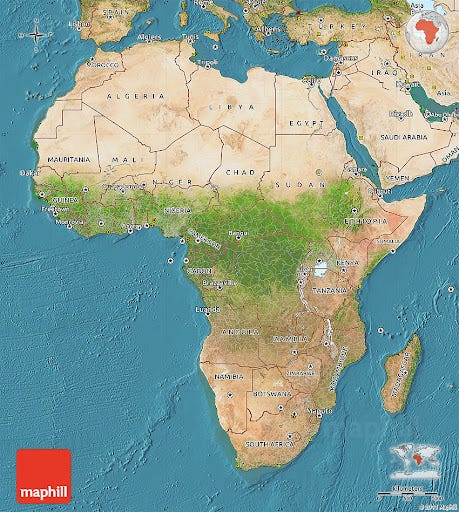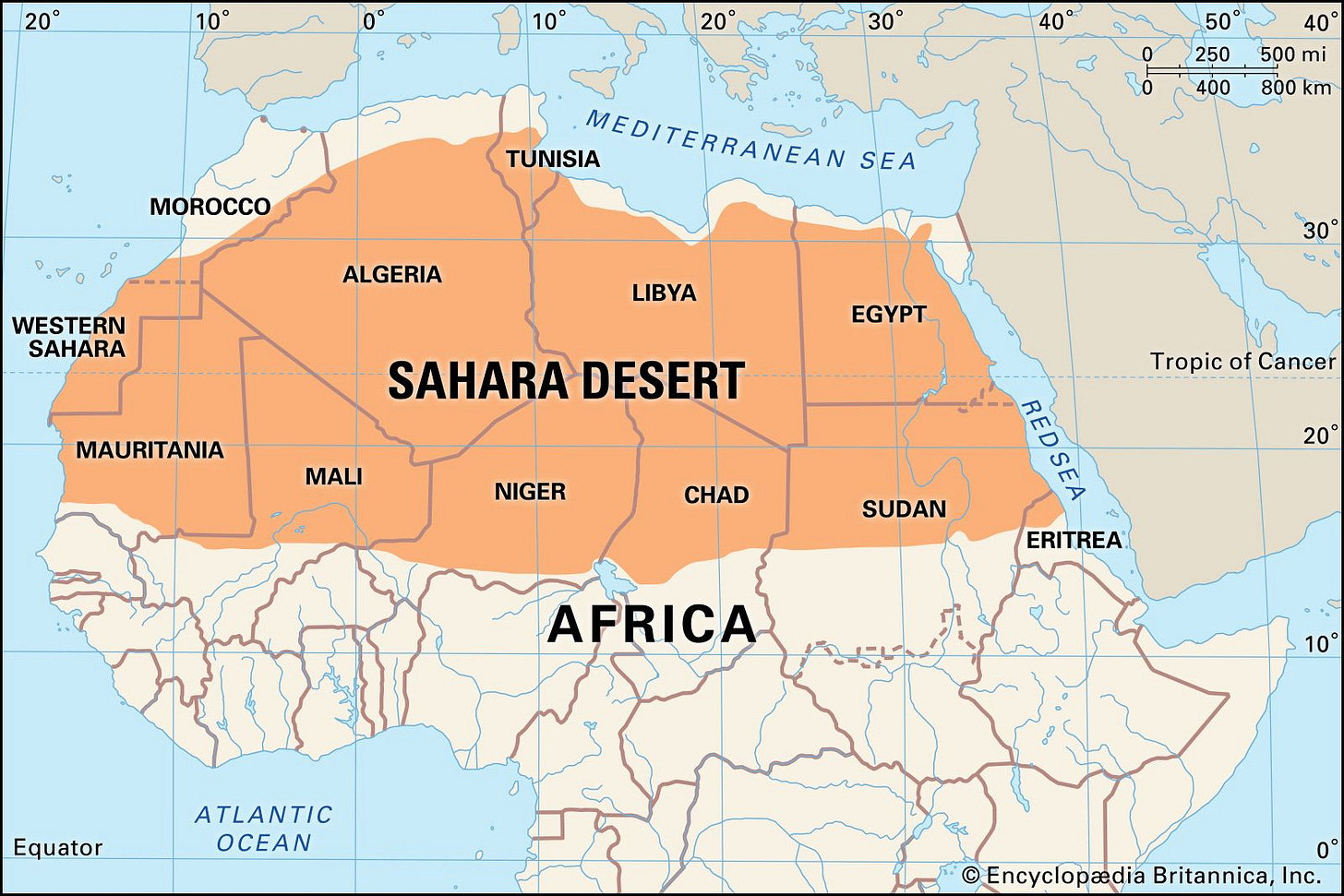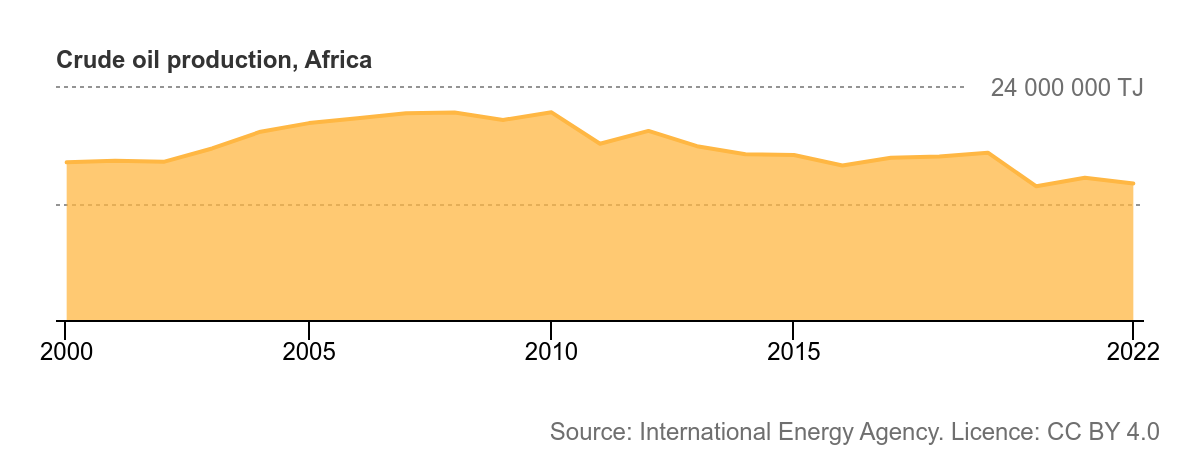Why This Part of Africa Is Erased from Every Map You See
Maps aren’t mere depictions of geography—they are the silent instruments of power, the blueprints of ownership, and the stakes in the global game for control over resources
“When resources are hidden from the world, the cost of ignorance is borne by those who are kept in the dark.”
– Unknown
Maps—at least the ones most people are familiar with—are powerful tools of perception. But there’s an unsettling fact: they don’t always tell the whole story. Take a closer look at the northern part of Africa, and you’ll see something that’s often obscured or entirely absent from mainstream discourse: the vast wealth of natural resources hidden beneath the Saharan sands. While political borders and historical narratives dominate our understanding of this region, the truth is far more complicated—and lucrative.
If you look at a map of Africa, chances are, you’ll see a wide swath of desert, stretching across the continent from west to east. But there’s a part of this desert that’s strangely absent from the conversation, despite its critical role in global energy and resource markets. It’s not just a blank space—it's an energy and resource treasure trove. From untapped oil and gas reserves to untold mineral wealth, this region holds the key to the future of both regional and global power. Yet, it’s rarely discussed in the context it deserves.
One of the biggest reasons why this part of Africa is so often "erased" from discussions is because the resources it houses are incredibly valuable—and incredibly out of sight. Most of the major global energy and resource powers have learned to look past the surface and focus on what's underneath.
The Sahara Desert, stretching across parts of Algeria, Libya, Chad, and Sudan, is home to some of the world’s largest oil and natural gas reserves. Algeria alone has the 10th largest proven natural gas reserves in the world, and the country’s oil production is among the highest in Africa. But that’s just the start. Throughout this region, untapped fields of petroleum and natural gas are waiting to be developed—potentially altering the balance of power in energy markets if ever fully realized.
And it’s not just about oil and gas. Beneath the Saharan crust lies a wealth of minerals, metals, and rare earth elements that are essential for everything from electronics to renewable energy technologies. In the southern Sahara, there are enormous deposits of lithium, the mineral critical for powering electric vehicles and the energy transition. There’s also uranium in Niger, copper in the Democratic Republic of Congo, and gold in Mali and Sudan. This region is a mother lode of the very resources that will drive the global economy forward in the coming decades.
However, the irony is that despite its staggering potential, this region remains largely underdeveloped, under-explored, and under-appreciated in the public consciousness.
Amid this vast natural wealth, one of the most contentious regions is the Western Sahara. For decades, this strip of land on the northwest coast of Africa has been embroiled in a geopolitical struggle that has seen both the interests of global powers and the region’s enormous natural resources at play.
The Western Sahara, a region roughly the size of the United Kingdom, is one of the most resource-rich territories on the planet—yet it remains in a state of political limbo. It is claimed by Morocco, but its sovereignty is disputed by the indigenous Sahrawi people, who seek independence. Spain, the former colonial power, still has historical ties to the region, and Algeria has long supported the Sahrawi independence movement.
Viewed from space! Provided by express.co.uk
This territorial dispute is not just a political quagmire—it’s a resource battle of global significance. The Western Sahara sits on top of some of the largest phosphate deposits in the world, crucial for global agriculture. Phosphate is a key ingredient in fertilizer, and the Western Sahara holds around 10% of the world’s known phosphate reserves, making it a strategic asset for feeding the planet’s growing population. In a world where food security is becoming an ever more pressing issue, control over these reserves is immensely valuable.
Provided by www.wrforum.org
Phosphate exports from the region primarily flow through Moroccan-controlled areas, and the resulting revenues are a critical part of Morocco’s economy. However, the Sahrawi people, who have no access to the wealth generated from these resources, view this as theft, and the broader international community is split on the issue. Some countries and organizations support Sahrawi independence, while others, notably Morocco’s allies, back its sovereignty over the region. This paradox of resource extraction in a disputed land continues to fuel both political and military tension.
But there’s another strategic dimension to the Western Sahara that often goes unmentioned in mainstream discussions: the natural gas pipeline that runs through its exclusive economic zone. This pipeline, known as the Nigeria-Morocco gas pipeline, extends from Nigeria to Spain, passing through the Western Sahara’s disputed waters.
Keep reading with a 7-day free trial
Subscribe to The Monetary Skeptic to keep reading this post and get 7 days of free access to the full post archives.










